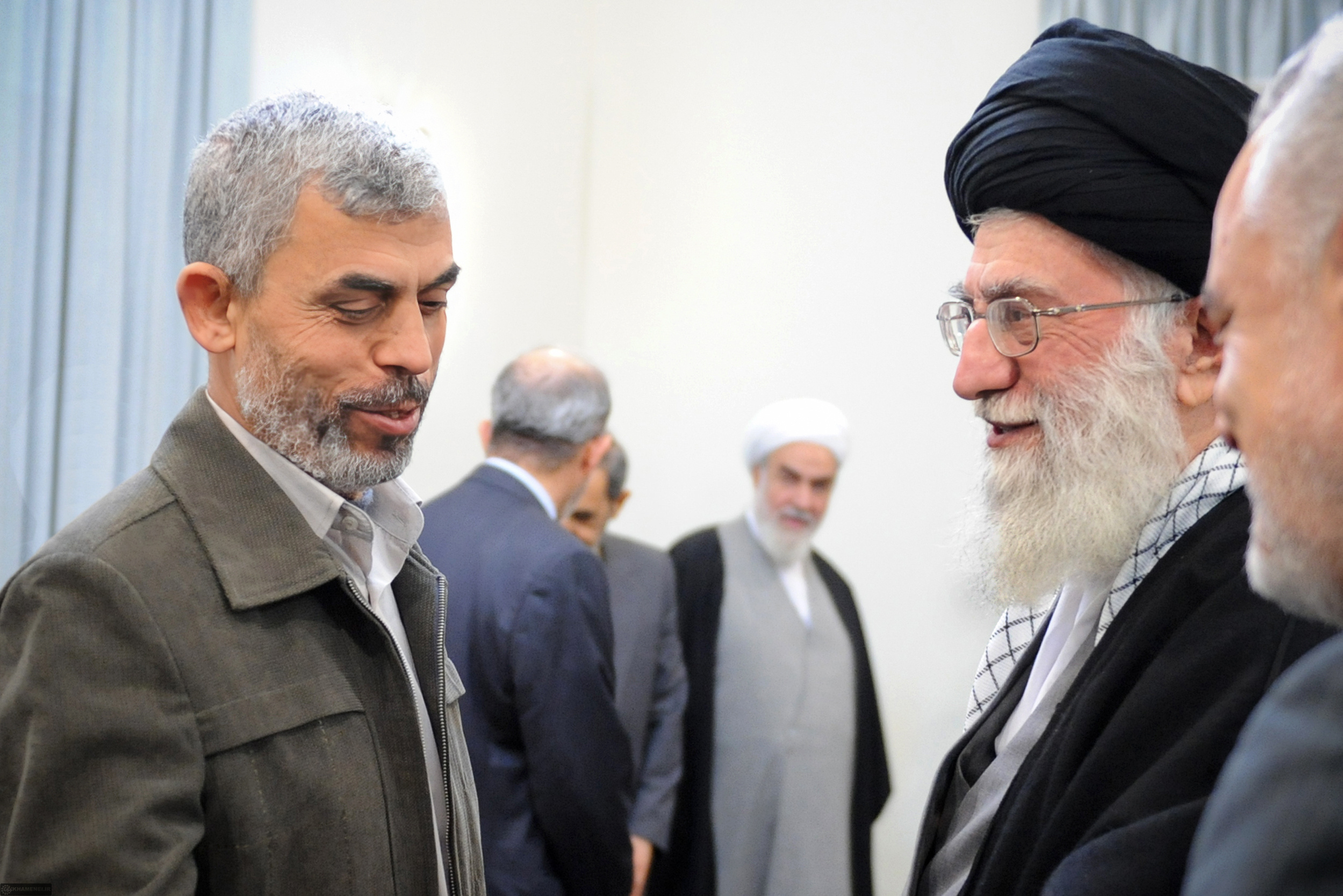
Compiled by Aidan New
Iran lies behind much of what Israel has battled since Hamas launched its brutal terrorist attack Oct. 7, 2023. By theology and ideology, Iran is committed to Israel’s destruction. By policy and practice, Iran is devoted to the use of proxies (its “axis of resistance”) to work toward that destruction and to try to hold Israel at bay in the meantime.
Many of the 80-plus experts who participate in CIE’s webinar series on the Hamas-Israel war offered insights into Iran’s motives and methods. Some of the best observations are provided here in five videos, addressing in under 5 minutes each the following topics: the proxies of the axis of resistance; the role of Shia ideology; the rivalry between Shia, Persian Iran and the Middle East’s Sunni, Arab states; Iran’s nuclear program; and Iran’s direct attack on Israel in mid-April 2024.
Iran’s Axis of Resistance Surrounding Israel
Iran has financed, armed, trained, and, in some cases, directed terrorist and militant groups such as Hamas, Hezbollah and the Houthis around the Middle East to incorporate them into its goal of destroying the State of Israel. That close relationship is why Hamas leader Ismail Haniyeh, who shared the goal of Israel’s destruction, was in Tehran when he was assassinated in the early hours of July 31, 2024. This video, a compilation of insights from experts who participated in the Center for Israel Education’s webinar series in response to the Hamas-Israel war that began October 7, 2023, is the first of a set of resources drawn from those webinars and focusing on specific issues and topics that emerged. See more …
How Shia Ideologies Fuel Hatred of Israel
Iran’s antisemitic rhetoric is deeply rooted in Shia-specific Muslim ideologies that portray Jews and the State of Israel as enemies and embrace the idea that the ritual uncleanliness of Jews dirties the entire world. Zionism is seen as the culmination of a Jewish war against Islam dating to the time of Muhammad and the Western war to dominate the Middle East. Israel’s existence poses a theological problem for an ideology that views Jews as inferior and doomed. Iran’s political motives and desire to lead the Muslim world, especially in the Middle East, also heavily influence the antisemitic narrative. The combination of this hateful rhetoric and the Islamist regime’s political agenda makes Israel the focus of Iran’s military and foreign policy. See more …
Iran’s Rivalry With Sunni Arab States
Iran, a Shia- and Persian-majority theocracy, frequently clashes with its Sunni Arab neighbors, including Bahrain, Egypt, Saudi Arabia, and the United Arab Emirates. These tensions are rooted in religious and ethnic differences and geopolitical rivalries. Under the Abraham Accords of 2020, several Sunni Arab states have aligned themselves with Israel as they share a common enemy in Iran. This shift underscores the security threat posed by Iran and highlights the regional response to Iran’s 40-plus years of aggression. See more …
Iran’s Nuclear Program
Iran’s development of a nuclear weapons program began in the late 1990s, accelerate in the early 2000s, and has remained a focal point for regional tension and international sanctions. It is a prime concern for Israel and the United States. Israel is believed to have made covert efforts to hinder Iran’s progress because an Iranian nuclear weapon would pose an existential threat to Israel and could have global repercussions. See more …
What Happened in Iran’s April 2024 Attack?
Before Iran launched nearly 200 ballistic missiles at Israel on October 1, 2024, it targeted Israel on April 13 and 14, 2024, with a series of missiles and drones, escalating regional tensions and prompting a comprehensive response from the Israel Defense Forces, neighboring Arab states, and allies such as the United States, the United Kingdom and France. The massive April assault marked the first time that Iran launched an offensive attack on Israel from its own territory. Israel’s moderate response, striking a military site near an Iranian nuclear installation, prevented the situation from expanding into an all-out regional war at the time. See more …
